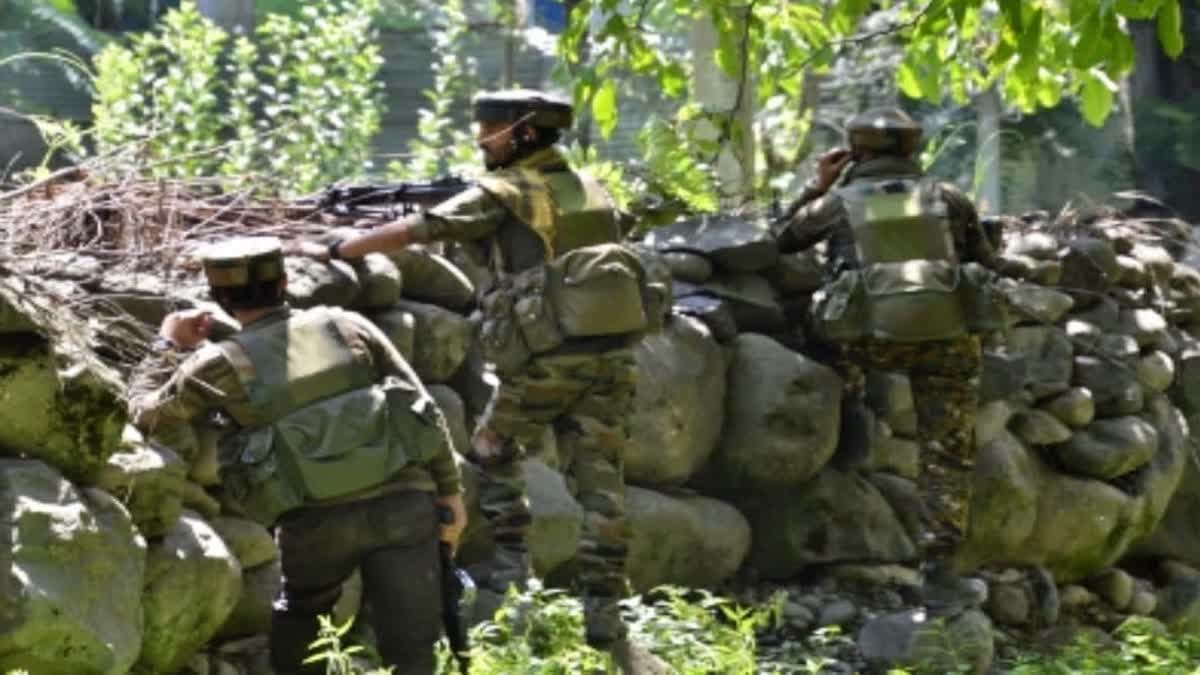Srinagar:Terrorists have upgraded infiltration tactics in Jammu and Kashmir and the recent lethal attacks on the Army indicate that the ground situation in the embattled region is sensitive and can slip towards instability, Vikram Jit Singh, a senior defence expert and war correspondent told ETV Bharat.
Four soldiers were killed and three grievously injured when militants ambushed two Army vehicles at Sawni village in the Poonch-Rajouri sector at 3.45 pm on December 21. The terrorists reportedly decamped with four weapons of the ambushed soldiers and allegedly mutilated two bodies before fleeing into nearby forests. The Army has launched a massive manhunt in the entire forest region to track down the attackers and are searching stretches of the LOC and International Border for tunnels used by terrorists.
"This was one of the most audacious and serious attacks on the Army in the sensitive Rajouri-Poonch region. The terrorists attacked in broad daylight. They had enough time to steal weapons, take photographs brandishing an US-made M-4 rifle, and mutilate the bodies of soldiers," Singh, who holds the distinction of being the only mediaperson to have covered the Kargil War in the high-altitude battle zones at point of contact. Vikram has also reported from the battlegrounds in insurgency-hit Kashmir in the late 1990s from the firing lines of encounters.
"This indicates that terrorists did not receive effective retaliatory firing from the Army in the ambush," he said, adding that even after a week the terrorists have not been tracked down in the vast forested areas with high ridges and natural caves. He said the terrorists have figured out the tactical responses of the Army and are planning lethal attacks with proper reconnaissance and understanding with the help of local support.
"They (terrorists) operate in buddy pairs. Sometimes two pairs conduct audacious attacks like ambushes. In six of the eight attacks on the Army over the last two years in Poonch-Rajouri and Kokernag / Kulgam heights, terrorists have been able to inflict high casualties on the Army without getting killed in retaliatory firing," he pointed out. "It is also significant that they attack the Army, not the state police in Poonch-Rajouri," Vikram said.
He quoted senior Army officers claiming that some of these attackers were retired soldiers of the Pakistan Army or terrorists with experience of fighting against the coalition forces in Afghanistan along with the Taliban. He said terrorists have resorted to using alternative methods of infiltration. "Apart from traditional routes, the terrorists are coming in through tunnels. They use the Punjab and Nepal routes. They get arms supply through drones. Therefore, the army has to revise its understanding of infiltration," he said.
